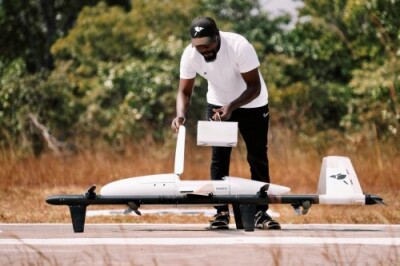A case in Sharpsville, PA pits a lone drone enthusiast against a neighbor and local authorities who say drone operator Robert Layman was harassing the dogs intentionally, causing them to harm each other. He is charged with Eco-terrorism and Taunting.
Tony Hallet, an expert on drones who trains others how to use them and who is the CEO of drone consulting firm Unmanned Response, will be testifying on behalf of the defense in the case at a hearing in March. Commercial UAV News chatted with Hallet a bit about the case, and why it matters to anyone who cares about the future and present legal operation of drones in the US. Commercial UAV News: Why is this case pertinent to all drone enthusiasts?Tony Hallet: The FAA has turned the corner of integrating unmanned aerial systems into the national airspace system. Integrating drones into communities, workplaces, and schools is the next big challenge. This case reflects the reality of what lies ahead for the drone industry. Why are you involved? It’s important for experienced members of the drone industry to provide factual information about the technology in any forum, including court. Why involve yourself in something controversial? What do you hope to achieve?Controversy erupts when fiction prevails over facts. We will provide facts that, ideally, will help all parties deliberate this case fairly. On a broader level, we hope the courts and criminal justice system recognize and understand the unique nature of unmanned robotic systems. How do you think our legislators should address the recurring problems our society seems to be having with drones and drone operators?First, state and local leaders need to accept the fact that the FAA is in charge of our national airspace. Period. The FAA is mandated to keep our skies safe and they are doing that. Second, government bodies at all levels must enact reasonable laws and regulations that complement the FAA’s regulatory framework rather than ambush the drone industry with regressive, fear-based legislation. Can't there be some sort of fail-safe "off" switch installed in all drones as required by law so they fall out of the sky or automatically land safely if anywhere near an airport or another sensitive location?It would be very difficult to mandate onboard solutions. Before we talk about kill switches, we need a clear and reasonable policy for how areas get designated as “sensitive.” Many communities have a zoning mentality with the national airspace, which is simply unworkable. NOMBYs (not over my back yard) are the new NIMBYs. Many universities - bastions of innovation and education - are banning all drone use on their campuses. The list keeps growing.Subscribe
The information you submit will be stored and used to communicate with you about your interest in Commercial UAV News. To understand more about how we use and store information, please refer to our privacy policy.
March 4, 2019
5 Minutes with Tony Hallet, CEO of Unmanned Response
















Comments